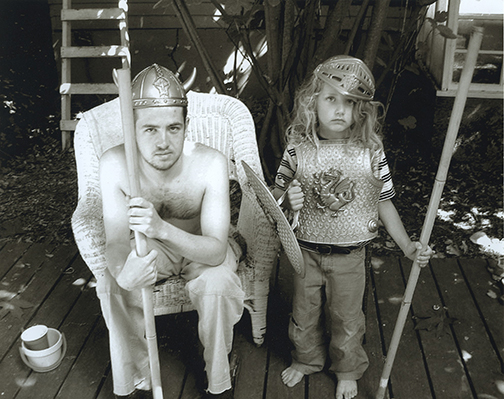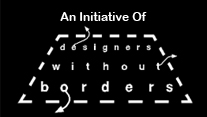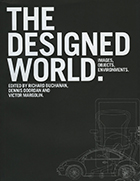David Stairs
What can be considered radical anymore?

In their day, Vikings were pretty radical
Used to be this was easy to answer. Back in the ’60s we had Abbie Hoffman and Students for a Democratic Society, and Angela Davis and the Black Panthers. In the ’70’s there was Russel Means and AIM under siege at Wounded Knee. In Germany from the ’70’s to the ’90’s there was the Baader-Meinhof Group. Alas, as much as I admire Glenn Greenwald’s efforts to correctly define the meaning of terrorism, they feel more like Bob Woodward than Patty Hearst. Yet, without waxing nostalgic about countercultural revolution, I can think of one amazingly apposite and lasting example.
In this 1971 essay, Deschooling Society, Ivan Illich argues that universal mandatory education has a chilling effect on learning and results in the “institutionalization of life.” Critiquing our indulgent society for its addiction to expectation and its rejection of hope, Illich locates our problems in Promethean foresight while personally preferring the hindsight metaphor of Prometheus’ brother, Epimetheus. Greece supposedly escaped the domination of the Titans like Chaos, Chronos, and Gaia’s son Python, only to fall victim to their replacements, the gods, like Apollo the “far darter,” who assumed control by instilling a love of learning, or paideia, into an ordered, rational, patriarchal society. This last point is not insignificant. Prometheus warned Epimetheus to be wary of the irrational and not marry the earth mother Pandora, but to no avail. Thereafter, Prometheus’s “endeavor” was to capture the “evils” his sister-in-law supposedly released into the world, and create institutions that would repair the damage.
In Illich’s view, “The Promethean ethos has now eclipsed hope.” Instead of independence + learning we got bureaucracy + teaching. In contemporary higher education, as soon as an idea proves potentially lucrative, its imitators and camp followers sprout like mushrooms, regenerating the meme until the idea either burns out or is superseded by a change of fashion. Thus, when a handful of “radical” individuals proved the viability of social altruism in design ten or fifteen years ago, many more conventional people thought the idea had merit and jumped on the bandwagon. Soon, all kinds of initiatives were masquerading as alternative. It did not take long before someone came along with a plan to neatly package and brand social responsibility and sell it through an academic outlet. Steven Heller and Mark Randell have created this brand at New York’s School of Visual Arts. Not short on hyperbole, !mpact enrolls its fourth class July 8th for a six-week residential summer workshop in SVA’s studios. Conducted like a graduate seminar, but granting undergrad credit, !mpact welcomes educators and practitioners from the creative professions into a two-track program designed to instill an entrepreneurial instinct for social design.
Track 1 teaches students to be able to conceive and execute their own social impact project, while Track 2 allows them to work with a local New York non-profit. Along the way, students are exposed to a variety of skills, such as concept development, working with NGOs, activity mapping, and writing a business plan, among many others. A hand-picked faculty of visiting experts gives lectures and leads field trips whose stated intent is “to meet with a range of influential designers, business leaders and social entrepreneurs.” These guests represent a cross section of studios, publications, and think-tanks from what are thought of as “cutting edge” innovators in the field. The only seemingly unkind cut is the price— the six-week package weighs in at a hefty $6000, or about three times the cost of average college credit.

On balance, hand sanitizing, while hygienic, is not very radical
While the program aspires to create social design “activists,” and student testimonials rave about the experience, I can’t help but think about Illich’s Thorueavian warning: “The contemporary ideal is a pan-hygienic world, a world in which all contacts between men and between men and their world, are the result of foresight and manipulation. School has become the planned process which tools man for the planned world, the principal tool to trap man in man’s trap.” In Walden Thoreau himself warned that men had become “tools of their tools,” so the notion is not new. But Illich’s tone is much more vehement. For him, universal public education is one of the worst things that could happen to an individual.
I realize this is far from mainstream thinking. The propaganda about education’s value is something we hear every day, echoed incessantly from the halls of government to teacher’s union halls. It is a favorite tocsin of the media. And, in fact, what self-respecting designer is going to argue with the notion of learning to plan? It’s the main conceptual entré to the profession. But Illich, who was no designer, was not being critical of learning, only of learning’s eclipse by education, the formulaic version of curricular learning developed by self-perpetuating pedagogues, a system that turns students into good, law abiding consumers. In other words, planning as the basis of conformity.
To be fair, Illich’s solutions, systems of learning webs and skill set exchanges, seem akin to what is being attempted with the SVA program. Except that the people paying top dollar to be shown how to do social design by the “experts” in New York are already over-educated and excessively affluent, especially if they can afford a $1000 per week New York working vacation just to be told things that are largely self-evident, or at least were to those “radicals” way back fifteen years ago.
Illich, who was never much of a conformist either, was palpably incensed when he spoke about American higher education: “Whatever his or her claims of solidarity with the Third World, each American college graduate has had an education costing an amount five times greater than the median life income of half of humanity.” And it’s as true today as it was in 1971. I’ve always been amused by programs that propose to teach people how to be entrepreneurial. On one hand, members of a capitalist economy are supposedly entrepreneurs by birthright, cutthroat individualism being what the system is all about. On the other hand, making entrepreneurial activity part of education seems incredibly contradictory. Entrepreneurship is, by definition, convention busting, while education breeds convention. Needless to say, I won’t be joining the !mpact program any time soon. In my mind it is what Illich would almost certainly have called “insufficiently radical.” And I, for one, do not accept that our most radical days are behind us. Yet.
David Stairs is the founding editor of Design-Altruism-Project











Leave a Reply
You must be logged in to post a comment.